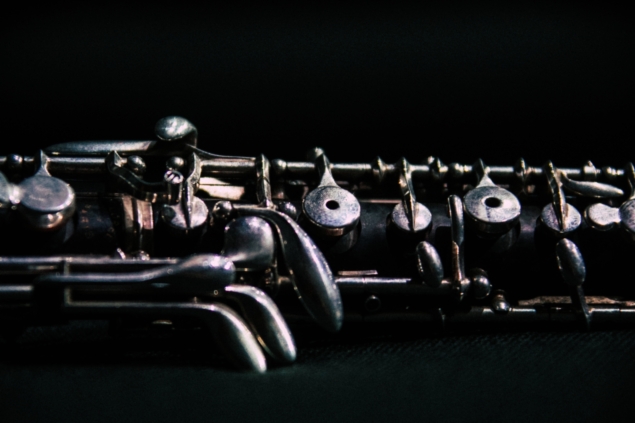The world premieres of works written for
Tristan Project. Fyodor Beznosikov, MCME
- Date:
- 25 Jun 2024,
20:00–21:30
- Age restrictions
- 12+
The final concert of the What is the Contemporary? series at

Photo: Anya Todich
The intrinsic modernity of Wagner’s operatic music can be measured by the number of twentieth‑century composers who have been moved to arrange or transcribe it, from Hans Werner Henze’s Tristan to Dieter Schnebel’s Wagner-Idyll, Salvatore Sciarrino’s Lohengrin, and transcriptions by Glenn Gould, Zoltán Kocsis, and Reinbert de Leeuw. For a century and a half, generation after generation of musicians have explored the artistic method of an author whose work remains a key reference point for contemporary music.
In the Tristan Project, commissioned by
Fyodor Beznosikov (b. 1993, Moscow) is a conductor and violinist. He graduated in 2017 from the Moscow Conservatory, where he studied violin under Vladimir Ivanov. He is currently studying opera and symphonic conducting at the Conservatory under Felix Korobov. Since 2023, Fyodor Beznosikov has worked at the Moscow Academic Musical Theatre, where he conducted the ballets The Snow Queen and The Final Session (2023). He also teaches violin at the Moscow Conservatory. Fyodor Beznosikov collaborates with Moscow’s New Opera Theatre, where he took part in the production of Richard Wagner’s The Flying Dutchman (directed by Konstantin Bogomolov, 2023). Since 2024 he has conducted performances by the Russian National Orchestra.
Moscow Contemporary Music Ensemble (MCME) was founded in 1990 by composer Yuri Kasparov assisted by Russian avant-garde luminary Edison Denisov. MCME was the first Russian ensemble to focus on music of the 20th and 21st centuries and performance of new pieces by contemporary composers. MCME has given Russian and world premieres of more than 1000 works.
Lilia Gaisina (b. 1986, Moscow) is a singer. She graduated in 2014 from the department of vocal studies at the Moscow Conservatory. She is a soloist at the Moscow Academic Musical Theatre and has worked with a number of orchestral ensembles: Musica Viva (Moscow Chamber Orchestra), La Voce Strumentale, Pratum Integrum, Questa Musica and the State Academic Chamber Orchestra of Russia. Lilia Gaisina has also taken part in a number of international festivals of baroque music: the Internationale Händel-Festspiele in Göttingen, the Ludwigsburg Festival, Potsdam—Sanssouci, and Musica Bayreuth. In Moscow, she has performed in the Homecoming and December Evenings concert series.
Sergei Kasprov (b. 1979, Moscow) is a pianist, harpsichordist, and organist. He studied historical performance on keyboard instruments at the Moscow Conservatory under Alexei Lubimov and organ under Alexey Parshin. He then completed a postgraduate course in piano, also at the Moscow Conservatory, before a period of study at Schola Cantorum in Paris under Igor Lazko. Sergey Kaspprv won a number of awards at international competitions in 2005–2007: a special prize at the International Vladimir Horowitz Competition for Young Pianists, the Grand Prix at the Maria Yudina International Competition for Young Pianists in Moscow, and the first prize at the Rubinstein and Scriabin competitions in Paris. He is a regular participant of piano festivals in Europe and Russia, including La Roque-d’Anthéron (France), Klarafestival (Belgium), Chopin and His Europe (Poland), Arts Square (Saint Petersburg), December Evenings, and Antiquarium (Moscow).
Programme
Sergei Petrenko (b. 1992)
Drei Felder (2024, world premiere)
Commissioned by
Mark Buloshnikov (b. 1990)
Parsifal. Mire (2024, world premiere)
Commissioned by
Arman Gushchyan (b. 1981)
Lohengrin. Nachklang (2024, world premiere)
Commissioned by
Alexei Sysoev (b. 1972)
Liebestod (2024, world premiere)
Commissioned by
Fyodor Beznosikov conductor
Moscow Contemporary Music Ensemble | MCME
Lilia Gaisina soprano
Vladimir Krasov baritone
Sergey Kasprov piano
Presented by Bogdan Korolek

